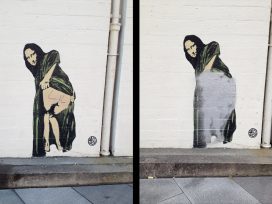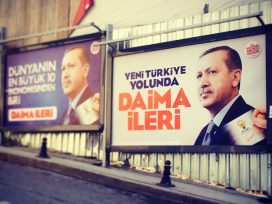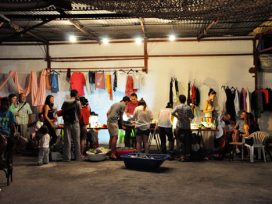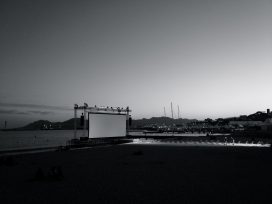
Articles
Read more than 6000 articles in 35 languages from over 90 cultural journals and associates.

Citizen with a bad conscience
Artistic immunity under the rule of law
If art is a pretentious concept, sub-art isn't
On the politics of Antanas Mockus as mayor of Bogotá
“When I am trapped, I try to do what an artist would do”, Antanas Mockus once said. And upon his election as mayor of Bogotá in 1993, his artistically driven actions met with considerable success. Joanna Warsza illuminates the lasting relevance of Mockus’ novel approach to politics.

Without equality and fraternity, freedom brings enslavement, writes Krzysztof Czyzewski. And overcoming the ego-centric tendencies that shape contemporary culture remains the central challenge of our times: the search for a culture of solidarity continues.

Dynamics of inequality
A conversation with Thomas Piketty
At the heart of every great democratic revolution there was a fiscal revolution, argues Thomas Piketty. And the same will be true of the future. Only a global register of financial assets and a progressive global tax on capital can keep global wealth concentration under control.
Diaries and memoirs of the Maidan
Ukraine from November 2013 to February 2014
In these impressions of the Maidan protests collected by Timothy Snyder and Tatiana Zhurzhenko, one hears the voices of those who witnessed history in the making. The role of civil society and the Russian-speaking middle class, as well as individual existential decisions, also come to the fore.

Photography and film changed the way we experience the world by capturing traces that would otherwise have been forgotten, assuming they were even noticed in the first place. Kristian Blomberg asks, could film be a metaphor for a rare kind of truth?
Putinism is not communism, yet it seems that many in the West are willing to understand and even accept Moscow’s actions. So how firm will the West’s stance be in protecting the foundations of European security subverted by Putin’s actions in Ukraine?

What do you know about VPNs?
Censorship in Turkey today
Words are under siege in Turkey and journalism has been taken hostage, writes Süreyyya Evren. When this era ends, he doesn’t know how long society will need to recover. But for now, it’s all about virtual private networks, among other forms of resistance.
The modernist moment
Urban politics in Brazil
Brazil may have been a favourite to win the 2014 FIFA World Cup. But the tournament failed to be the host country’s promised game-changer, writes Tom Hennigan. As triumphs of the tropical modernist movement continue to be swamped by new development, the dismal quality of urban life remains a sore point.

Boom or bust time for critical thinking?
A conversation with Richard Heinberg
Following the massive bailouts, stimulus spending and quantitative easing of recent years, everyone breathed a sigh of relief and went back to sleep, says Richard Heinberg. But the coming global energy crisis will likely provide the jolt that wakes everyone up again.

Beyond digital discontent
A conversation with Astra Taylor
The Internet and the World Wide Web were designed with a combination of academic, public service and even countercultural values, says Astra Taylor. So why do we accept that corporate values should now take precedent? Introducing the “people’s platform”.

Uncommon knowledge
A transversal dictionary
In a text based on her presentation at Eurozine’s Oslo conference on the making of the public sphere, Pelin Tan explains how artist-run platforms are generating unique forms of solidarity, translocal networks and various types of transversal knowledge and alternative pedagogies. In so doing, Tan makes the case for a language that remains faithful to the project of rebuilding a collective consciousness.

A film critic without a film festival is no film critic at all, insists Matic Majcen, film editor for the Slovenian journal “Dialogi”. To be completely alone with the film and one’s opinion of it is a unique experience in a film world where advertising and promotion are becoming increasingly invasive.